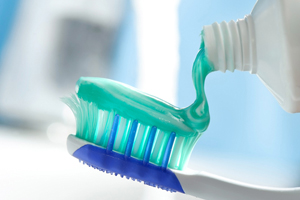 What is fluoride, and why is it good for my teeth?
What is fluoride, and why is it good for my teeth?
Fluoride is a compound of the element fluorine, which is found universally throughout nature in water, soil, air, and in most foods. Fluoride is absorbed easily into tooth enamel, especially in the growing teeth of children. Once teeth are developed, fluoride makes the entire tooth structure more resistant to decay and promotes remineralization, which aids in repairing early decay before the damage is even visible.
“Systemic” fluoride is ingested when added to public and private water supplies, soft drinks and teas, and is available in dietary supplement form. It is absorbed through the gastrointestinal tract, and is distributed throughout the entire body. Most fluoride is deposited in bones and hard tissues like teeth.
What’s a “topical” fluoride, and when should I use it?
“Topical” fluoride is found in products applied directly to the teeth, including toothpastes and mouth rinses. Dentists recommend brushing with a fluoride toothpaste at least twice a day or after every meal, combined with a regimen of flossing and regular dental checkups.
Professionally-administered topical fluorides such as gels or varnishes are applied and left on for about four minutes, usually during a cleaning treatment. For patients with a high risk of dental caries, we may prescribe a special gel for daily home use, to be applied with or without a mouth tray for up to six weeks.
Why is most of the water we drink fluoridated?
Fluoridated water protects against cavities and root caries–a progressive erosion of adult root surfaces caused by gum recession–and helps remineralize early carious lesions. Thanks to these preventive benefits, mass water fluoridation is considered the most efficient and cost-effective dental caries prevention measure available.
What about those “theories?”
After countless studies, tests, and scientific reviews conducted since the 1930s, fluoride used in normal amounts has not been proven to be hazardous to human health.
Can I get too much fluoride?
In general, the use of fluoride is considered safe unless it’s misused or overconcentrated.
Drinking excessively fluoridated water can cause dental fluorosis, a harmless cosmetic discoloring or mottling of the enamel, visible by chalky white specks and lines or pitted and brown stained enamel on developing teeth.
Avoid swallowing toothpaste, mouth rinses or other topical supplements, and take care to only use proper dosage.
If you are concerned about the fluoride levels in your drinking water, call the local public water department. If the source is a private well, request a fluoride content analysis taken via a water sample through your local or county health department.
